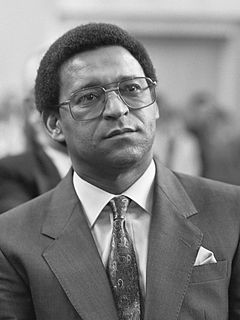A Quote by Allan Boesak
If your starting point for understanding humanity is a racialist viewpoint, with superiority and inferiority projected onto people because of the color of their skin, then it's so easy to take the next step of justifying that point theologically and reading it into the Christian scripture. And that makes it harder to understand what scripture is actually saying!
Related Quotes
I think that the best movies are made, not from a point of view that depends on your personal history, whether it's the color of your skin or the politics that you had or the place that you come from, but from a point of view of an understanding of human nature, an understanding of history, and an understanding of what motivates people.
Everything we do, our every objective, must be undertaken for the sake of... purity of heart... we must practice the reading of the Scripture, together with all the other virtuous activities... to hold our hearts free of the harm of every dangerous passion and in order to rise step by step to the high point of love.
In terms of applicability to today's world, many people are trying to domesticate Scripture so as to get the PC answer, the politically correct answer on a wide range of subjects, whether it's homosexual marriage, or a certain view of government, or a certain view of eschatology or whatever. At the end of the day we want also to encourage the kind of reverent handling of Scripture that wants to be corrected by Scripture, that is more eager to be mastered by Scripture then to master it.
Now, you see, if you understand what I'm saying, with your intelligence, and then take the next step and say "But I understood it now, but I didn't feel it." Then, next I raise the question: Why do you want to feel it? You say: "I want something more", because that's again that spiritual greed. And you could only say that because you didn't understand it.
I believe scripture is not just resilient but rebellious against its abuse by people. Scripture says it refuses to be used in that way for long. That is why the gospel that has been used by the oppressors is the same gospel that liberated the oppressed: They were reading the same book. Something in the DNA of Christian faith and in the Bible agitates against that kind of misuse.
We want to fan the flames of Christians for whom inerrancy and the authority of Scripture are not mere shibboleths, but part of her life beat, part of the beating heart of what makes them tick. They revere Scripture, not because Scripture becomes an idol, but because it discloses God who is especially come after us in salvation and redemption through the person of his son, his cross, his resurrection, the full sweep of the gospel.
Let this point therefore stand: that those whom the Holy Spirit has inwardly taught truly rest upon Scripture, and that Scripture itself is self-authenticated. . . . Therefore, illumined by his power, we believe neither by our own nor by any one else's judgment that Scripture is from God; but above human judgment we affirm with utter certainty (just as if we were gazing upon the majesty of God himself) that it has flowed to us from the very mouth of God by the ministry of men.
There's a lovely Hasidic story of a rabbi who always told his people that if they studied the Torah, it would put Scripture on their hearts. One of them asked, "Why on our hearts, and not in them?" The rabbi answered, "Only God can put Scripture inside. But reading sacred text can put it on your heart, and then when your hearts break, the holy words will fall inside.
Some people are ignorant of the world but educated in Scripture, and are therefore prone to missing the relevance of Scripture - these sometimes, later, amidst life's challenges and doubts, turn from the faith; other people are ignorant of Scripture but educated in the world, and are therefore prone to missing the truth of Scripture - they are often those who ridicule the faith. The apologist stands somewhere in the center. He articulates where some are prone to understanding the truth in beauty, others the beauty in truth - that of a spiritual Creator in relation to his scientific creation.
We often sometimes forget that- prior to the invention of removable pipe- there really were no English Bibles. We have treasures, we have Bibles in every size and shape and color. But there's a failure to recognize what's contained inside the cover of the Bible. We grow apathetic, and I think that the issue is reacting to the Word of God. Not just carrying, but get back into the Word of God and then get the Word of God into us. It's all about mining the scripture, memorizing the scripture, and meditating with our scripture.
All appeals to Scripture are appeals to interpretations of Scripture. The only real question is: whose interpretation? People with differing interpretations of Scripture cannot set a Bible on a table and ask it to resolve their differences. In order for the Scripture to function as an authority, it must be read and interpreted by someone. According to "solo" Scriptura, that someone is each individual, so ultimately, there are as many final authorities as there are human interpreters.






























